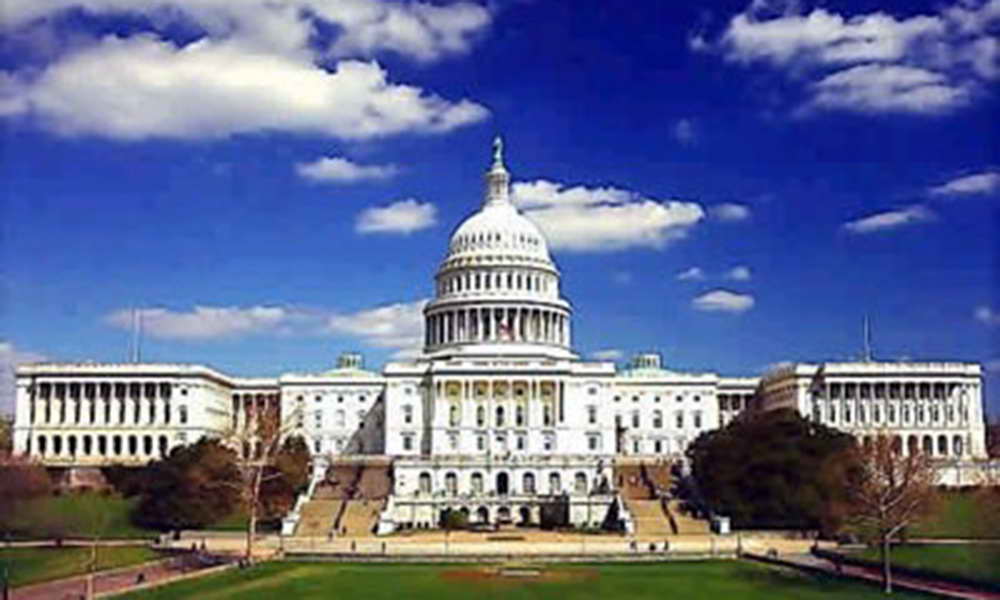January 14, 2011
1/14: Most Say Compromise Key for New Congress
According to this national McClatchy-Marist Poll, more than seven in ten registered voters — 71% — want to see compromise among political leaders in Washington in order to get things done. Nearly one in four — 23% — disagree and believe Congressional Republicans should stand firm on their positions even if it means there is a stalemate between them and the Democrats. Just 5% are unsure. Little has changed on this question since McClatchy-Marist’s late November survey when 72% reported compromise should ensue, 25% thought Congressional Republicans should not waver on their positions, and 3% were unsure.
 Click Here for Complete January 14, 2011 USA McClatchy-Marist Poll Release and Tables
Click Here for Complete January 14, 2011 USA McClatchy-Marist Poll Release and Tables
When it comes to what voters think will happen, a majority of voters — 52% — still believe Congressional Republicans will stand firm on principle. This is a decline from 64% who shared this view in late November. More voters now expect there will be compromise between the Republicans and the Democrats to get things done. 36% currently believe this to be the case while 28% thought Republicans would work with their Democratic counterparts and the president in the earlier poll.
“Voters have taken notice of recent legislative successes,” says Dr. Lee M. Miringoff, Director of The Marist College Institute for Public Opinion. “But, there is still a wide gap between what voters want from our nation’s political leaders and what they think is likely to occur.”
On this question, independents play an important role. Fewer independent voters think Republicans and Democrats will stand firm against each other. Currently, 48% believe Republicans will hold fast to their views while 41% say members of the GOP will compromise with Congressional Democrats and the president. 11% are unsure. In McClatchy-Marist’s November survey, about two-thirds of independents — 67% — did not think Republicans and Democrats would compromise while 26% said they would. Seven percent were unsure.
Table: House Control — Should Republicans Compromise?
Table: House Control — Should Republicans Compromise? (Over Time)
Table: House Control — Will Republicans Compromise?
Table: House Control — Will Republicans Compromise? (Over Time)
Most Unhappy with Health Care … But Only Three in Ten Want Complete Repeal
Republicans in the U.S. House of Representatives are expected to take action to repeal the 2010 Health Care Law, but are voters satisfied with the law? Just 14% of registered voters want the law to exist in its current form. 35% want it changed so that it does more, and 13% would like it altered so that it does less. Three in ten — 30% — want the law completely repealed. Nine percent are unsure. These proportions are similar to those found in McClatchy-Marist’s late November survey.
Table: 2010 Health Care Law
Table: 2010 Health Care Law (Over Time)
Table: 2010 Health Care Law (Categories Combined)
Table: 2010 Health Care Law (Categories Combined Over Time)
Message to Congress: Focus on the Deficit
A majority of registered voters nationally — 53% — think that Congress’ top priority should be reducing the nation’s deficit. Nearly one in four — 23% — want to see maintaining services and benefits play a key role, and 19% believe cutting taxes should be the most important item on the Congressional agenda. Only 5% are unsure. More voters place importance on the nation’s deficit than last month. When Marist last asked this question in its December survey, 47% reported the deficit should be the top priority for the new Congress.
Table: Congress’ Top Priority
Table: Congress’ Top Priority (Over Time)
McClatchy-Marist Poll Methodology
Related Story from McClatchy:
Poll: Obama rebounding with voters, would beat GOP rivals, crush Palin

